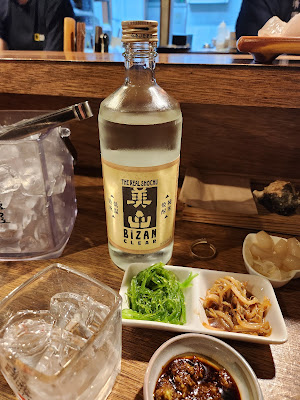Unconventional taste and rough sea ahead
I am always excited about trying to
eat new sea foods and this time I have a good time to taste soy source seasoned
herring at the local restaurant. Now, the fuss over Fukushima contaminated
water discharge seemed to be fizzled out. Many seafood manias looked very
happy, ignoring such event. However, recently, a new serious issue that may
concern seafood lovers alike emerge.
There have been several fatal fishing
boat accidents took place in the Korean waters. On the 9th this
month, a 20-ton Jeju shipping fishing boat sank in the sea of Yokjido Island in
Tongyeong, Gyeongsangnam-do, killing four sailors and missing five. Five days later, a 139-ton
fishing boat from Busan that set sail to catch sardines also sank off Yokjido
Island, killing four people. During the
spring spawning season when fish move to the coast, it is difficult to catch
fish in the distant sea, so they often go out to the prohibited area and
operate.
All these incidents have something to
do with excessive fishing. Fishermen continue such dangerous practices despite
the monthly safety inspections and crackdowns by local authorities. Even the basic regulations
prohibiting fishing in the event of strong winds, wind warnings, or typhoons
are not properly followed.
Experts point out that long-term
resource management is necessary as well as safety education. Securing fishery resources
can be ultimate solution to problems. Last
year, there were more than 2,000 fishing boat accidents.
As it accounts for 70% of all marine
accidents, it is necessary to come up with measures to preserve fishermen's
safety and fisheries resources. Because of depletion of resources and
pollutions in the ocean, sea food related industries think more seriously about
aquaculture to raise many species in the farms. However, such efforts also met
strong oppositions from environmentalist organizations in Korea and overseas.
I previously posted an article on octopus farming but recently,
a ground-breaking bill to prohibit octopus farming has passed the Washington
State Senate US with a vote of 29 in favor of the legislation, whilst 20
senators sat in opposition. The bill was advocated for heavily by multiple animal rights
NGOs. The organizations repeatedly urged state legislators to support the bill
to the House Agriculture and Natural Resources Committee last year, as well as
the House Rules Committee and the Senate Rules Committee this year.
The
Aquatic Life Institute, which also works with corporations on procurement
policies banning the purchase of farmed octopus, stated in a press release that
their concerns towards cephalopod farming stem from the nature of octopuses as
“highly intelligent and complex animals that suffer greatly in captivity due to
their solitary and inquisitive nature.”
“Furthermore,
there are no approved humane slaughter methods for these animals, and their
carnivorous diet makes farming them unsustainable and damaging to the
environment. Nitrogen and phosphorus waste would be a product of the octopus
farms, as would contamination from fertilizers, algaecides, herbicides, and
disinfectants. It is also possible that diseases would spread from the farms to
the wild environment, and aquatic animals living in those environments,” they
added.
The
passing of the bill at the state Senate level represents a significant success
for NGOs, but I am not sure if fishermen all around world think same way. This
event will influence other states, such as Hawaii and California introduce
similar bills which prohibit the farming and sale of certain species of
octopus.
Rather
than completely banning octopus farming, at least in Korea, I recommend investing
to conduct R&D to develop sustainable methods for aquaculture. Such efforts
may mitigate depletion of fishery resources. At the same time, prevention of
over-fishing and further pollution of oceans are always important.





Comments
Post a Comment